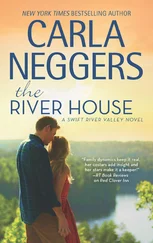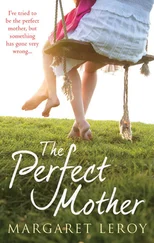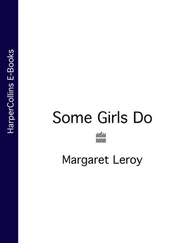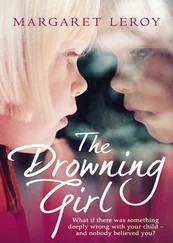1 ...7 8 9 11 12 13 ...16 We drive slowly out of the city, through heavy traffic. The car feels lighter without all Molly’s stuff in it.
‘I wonder how she’ll get on,’ I say to Greg.
‘Don’t worry, she’ll be fine,’ he says. ‘Molly always copes. Look, I don’t suppose you could dig me out a Milk of Magnesia, could you? I shouldn’t have had that crème brulée.’
There’s a packet he keeps in the glove compartment. I tip out a pill and hand it to him. The jasmine scent of Molly’s bath oil is still all over my hands. We have to wait for a long time at the roundabout on the ring road. I feel as if there’s something lurking just round the corner of my mind: some grief, skulking there, waiting to grab me.
Amber is hunting in her bag for her iPod.
‘It’s weird,’ she says. ‘You feel you haven’t said goodbye properly—that there’s something you should have said which you forgot to say.’
‘I feel the same,’ I tell her.
She takes out the iPod and chooses a song.
‘I’ll miss her,’ she says, her voice a little husky.
‘I know you will, sweetheart. We all will.’
She isn’t listening any more; she has her earphones in.
‘Greg, I’m worried Molly won’t wake in time in the mornings,’ I say. ‘I thought I’d send her our alarm clock—you know, just to tide her over till she can get to the shops.’
‘Ginnie, for God’s sake.’
‘She needs something.’
‘Well, so do I. I mean, what will wake me up?’ He turns slightly towards me; I smell the chalk on his breath.
‘You could use the alarm on your watch.’
‘OK, OK,’ he says wearily.
We drive through the Chilterns, through the swoop and dip of the downs. The sky is blue as ash. I can just hear the faint tinny sound of the music on Amber’s iPod.
‘I wonder what it will be like without her,’ I say.
‘Well, not so very different, I imagine.’
‘We could do more things together, I suppose.’
‘Such as?’
‘Oh, I don’t know. Perhaps we could go out a bit.’ My voice small, tentative. ‘You know, when Amber stays with her friends. Perhaps we could go away together or something.’
‘It’s a possibility,’ he says. ‘Though to be honest I’d welcome a bit more time to get this book together. Fenella’s very patient, but she’s starting to make noises.’
I think of Fenella, his literary agent: her Sloaney clothes—the pearls, the velvet Alice bands—her immaculate vowels and limitless self-assurance. I try to push away the irritation I feel.
‘But—I mean—things will be different now, won’t they? It’s a big change.’
‘Ginnie, we only left Molly half an hour ago.’
‘But we have to make it a positive thing. You know, a chance to do things differently…’
He’s quiet as though he’s thinking. I feel a flicker of hopefulness—that maybe he will agree.
‘There was one thing I thought of,’ he says. ‘I thought I might move into Molly’s bedroom. Just while she’s away. I’m sure we’d both sleep better. Would that be OK with you?’
‘Yes, of course,’ I say. ‘If you want to.’ This jolts me. I swallow hard. ‘I’d have to clear out her room first—it’s a total tip in there.’ Trying to be light about it. ‘But I was thinking more of maybe doing things together…’
‘Let’s not go rushing into anything,’ he says.
A dark mood washes through me.
The cars all have their headlights on now: bright beams from the oncoming traffic weave across us. We drive through a stand of birches, their slender trunks and branches pale and naked in the lights. I realise I had hoped for something in this moment—though the hope was never fully conscious, and certainly never expressed. That there’d be a kind of freedom or renewal. That we’d enter a new landscape, with glimmerings of what life might be like when Amber too goes, when it’s just the two of us, and that it would be a place that I could live in. That there’d be a new intimacy—dinner sometimes in restaurants on the waterfront, trips to the theatre, winter weekends in Prague. A rediscovery of one another.
Yet in this moment I know the limits of what we have, what we are. I see that what is missing is not just something postponed or which can be recovered. Not something put aside for a while or safely stowed away—like a book you never quite finished but hoped one day to return to. Is this my fault? I wonder. Have I tried hard enough, done enough to mend it?
We went to a Marriage Guidance counsellor once. It was my idea, of course, but Greg agreed to come—unwillingly, but at least he agreed. I was so grateful to him. I remember this, as we drive along the motorway and the countryside darkens around us. I tell myself—at least I did what I could, at least I tried.
The counsellor had a room with walls the colour of mint toothpaste, and on the table an African violet that looked as though it was made from plastic, the leaves too clean and symmetrical to be real. She smelt of anti-bacterial soap and she wore a polyester blouse with a floppy bow at the collar.
We talked for three sessions before we reached what we’d come for. She never seemed quite comfortable with us: perhaps my being a psychologist made her nervous. We talked about our children, the families we grew up in, and what we did when we disagreed—which seemed to be her speciality. The thing we had really come to say hung there in the room with us.
Eventually I told her that sex was our problem. She flushed a little when I said this, her neck blotching with purple above the polyester bow. Her embarrassment seemed a serious flaw in a marriage counsellor. She said, rather primly, that she thought the physical relationship between any two people would be fine if the communication was right. And I thought, No, that’s not true: sex is about sex, it’s not about communication.
I remembered how it had happened. How after the children I was always so tired; and we went on having sex, though I didn’t really want to, because it seemed mean to say No: but an orgasm seemed to take more energy than I had. There’s a moment of decision, of reaching out for pleasure, you have to focus, to fantasise—well, it’s like that for me anyway—and it never seemed quite worth the effort. So I used to say, Leave it, really, I don’t mind. And sex had come to seem pointless, even inappropriate—as though it wasn’t what our relationship was for. I’d tell myself this didn’t matter, that I could live without it. Yet always with an awareness of something obscurely wrong, of an absence—some primary colour missing from my life, as though I were a picture painted without red. I couldn’t begin to explain this to her.
She tried a different tack. She said how sex—just the physical thing—often isn’t enough for women: we women need to feel we’re making love. She said this with emphasis, as though it were a unique insight. I told her this was a distinction I’d never understood. My response seemed to perplex her. But romance was so important, she said, all those little gestures that make a woman feel special.
I tried again.
‘But I mean—after having kids—sex does go sometimes, doesn’t it? Don’t you find that with other couples? What happens to them? Does it ever come back?’ My voice was shrill, urgent. I really wanted to know this.
She said it was us she wanted to talk about now—not other couples.
She had some suggestions, some stratagems. I was to ring Greg at work and to make an appointment for sex. When she saw how we both responded to this, imagining me interrupting a semiotics tutorial with a lascivious proposition, she moved on down her list. I needed to pamper myself, she said—she was very keen on pampering, which seemed to involve the purchase of scented candles and expensive bath products. I muse on this now, as we drive on through the darkening landscape—because it’s quite a common belief, and yet so very strange. As though sex can be found at a department store cosmetics counter, among the flash balms and exfoliants, and purchased from one of those pushy women with clinical white coats and far too much mascara. Whereas desire is to be found in other places entirely. At a party where a stranger comes up behind you and runs his hands down your sides. Or in an afternoon office, where a man who smells of smoky rooms holds your eyes for a little too long and pushes up his shirtsleeves. Yes, especially that: just thinking of it.
Читать дальше












